Paving Destiny’s Dirt Road
Noble Research Institute presented William and Karen Payne with the 2019 Leonard Wyatt Memorial Outstanding Cooperator Award for their dedication to land stewardship and education.
Destiny is down a dirt road.
More than a decade ago, William and Karen Payne rumbled toward it in their maroon Ford F150. The couple were looking for the promise of a fresh start in 2006 after two farms had flopped in drought. They were hoping to find a rancher’s redemption in the 920 acres of rangeland they were en route to view in St. Louis, Oklahoma. Karen leaned close to the window, fogging up the glass. William raved about their grandson’s baseball game from the night before. They were one mile from their future.
The romance of running cattle on an Oklahoma ranch fizzled as they pulled through the gate. The property looked like a Christmas tree farm as eastern redcedars, which gorge themselves on groundwater and chase out native plants, blanketed nearly every acre. Grass roots anchoring sediment had shriveled away. Erosion had pillaged topsoil from the uncovered ground.
The Paynes spotted scant grass patches shuddering on the ocean of bare ground. These castaways were the last remnants of rangeland devoured by 22 years of poor land management. The tenacious blades were also a glimpse of the rangeland’s former grandeur.
“A land consultant said don’t buy it,” William explains. “They said the land would need at least 20 years to recover, then he gave us the hard copy soil profile maps for the property. I realized there had been good soil here. Things had grown here. They could grow again.”
The Paynes bought the property. Fourteen years later, their ranch is heralded as a masterpiece of environmental restoration. Land stewardship became their divine appointment, inspiring the property’s name — Destiny Ranch.
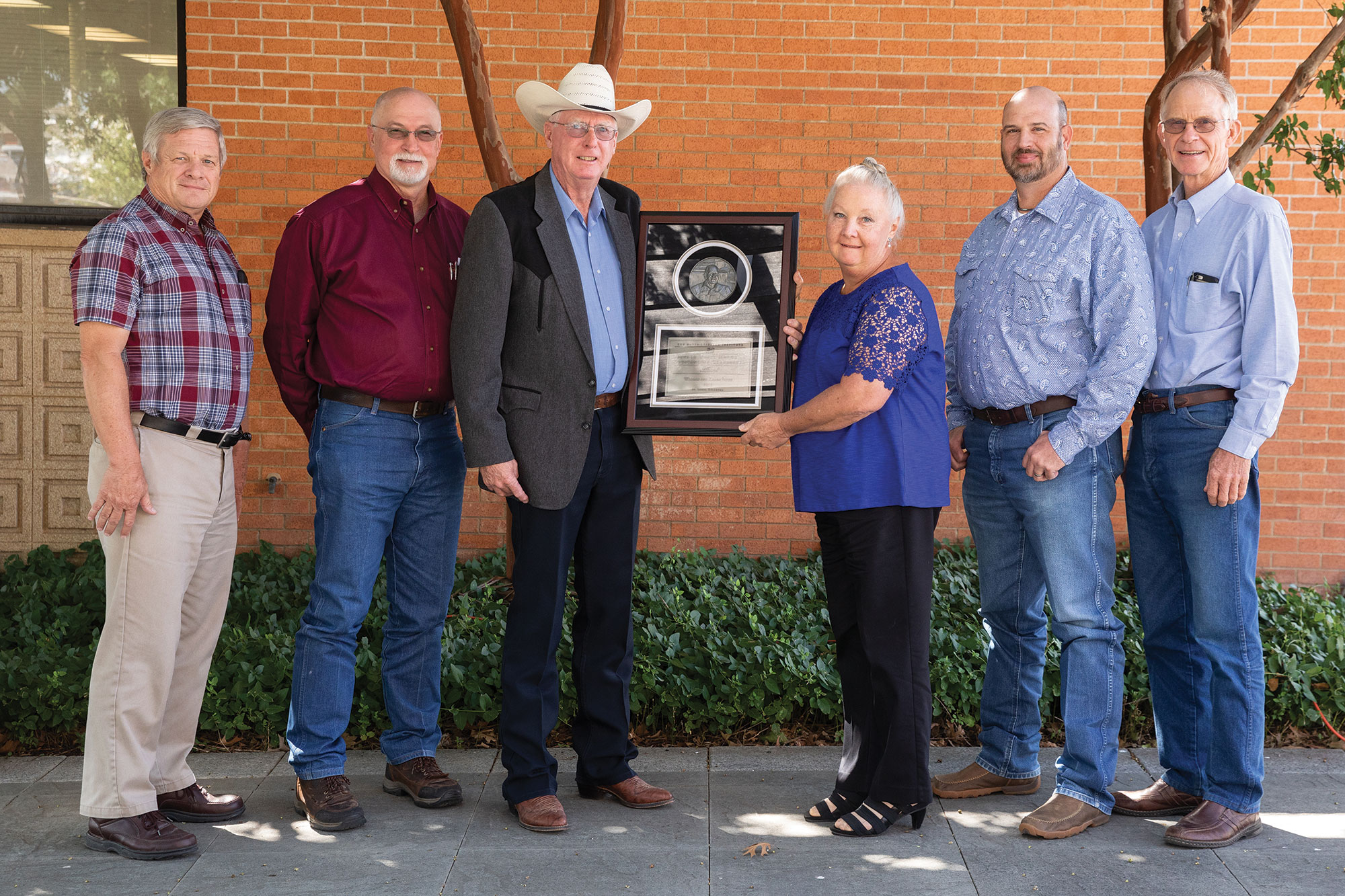
Defeated in Drought
The Paynes know what happens when landowners treat soil like dirt.
Back in 1930, Karen’s parents were children when a blizzard of dirt, known as Black Sunday, swept over their families’ farms in the Oklahoma Panhandle. Some 300,000 tons of dirt blew east in one day. For years, the region’s soil broke apart and was carried away by the wind like flour.
The Dust Bowl’s ghost lingered over the Panhandle. Its phantom arose in the ’70s, plaguing the Paynes on their first farm. William watched silt as fine as powdered sugar shroud his crops. Karen resurrected tactics from her parents’ era. She draped clean, damp sheets over her daughters’ beds. The fabric was soaked in dirt by morning. She filled pans with sitting water to catch the earth seeping into her cabinets.
Noble Research Institute was behind us in everything we had to do. They gave us the information to make educated decisions.”
William Payne, Destiny Ranch
“We both realized the Dust Bowl could happen at any time if you don’t take care of the land,” William says. “We watched the soil get up and leave the Panhandle. We have to conserve everything. You can’t just keep hammering the soil.”
A suffocating layer of newly deposited silt consumed fields once green with wheat in 14 days. Those two weeks, coupled with a three-year economic downturn, forced the Paynes off their first farm. They established a second ranch in Colorado, only for drought to choke out their dream once again.
William took a job as a diesel mechanic. His first assignment sent him to the Amazon River in Brazil. Karen and their three daughters followed William’s work there and to three additional countries during the next decade. Their dream of owning a ranch stayed with them everywhere they went.
“We always came back to the farm,” Karen says. “We came back to the ranch no matter what kind of job he was on. It was our love.”
When their daughter called about a ranch for sale in St. Louis, Oklahoma, they rolled down the road toward Destiny.
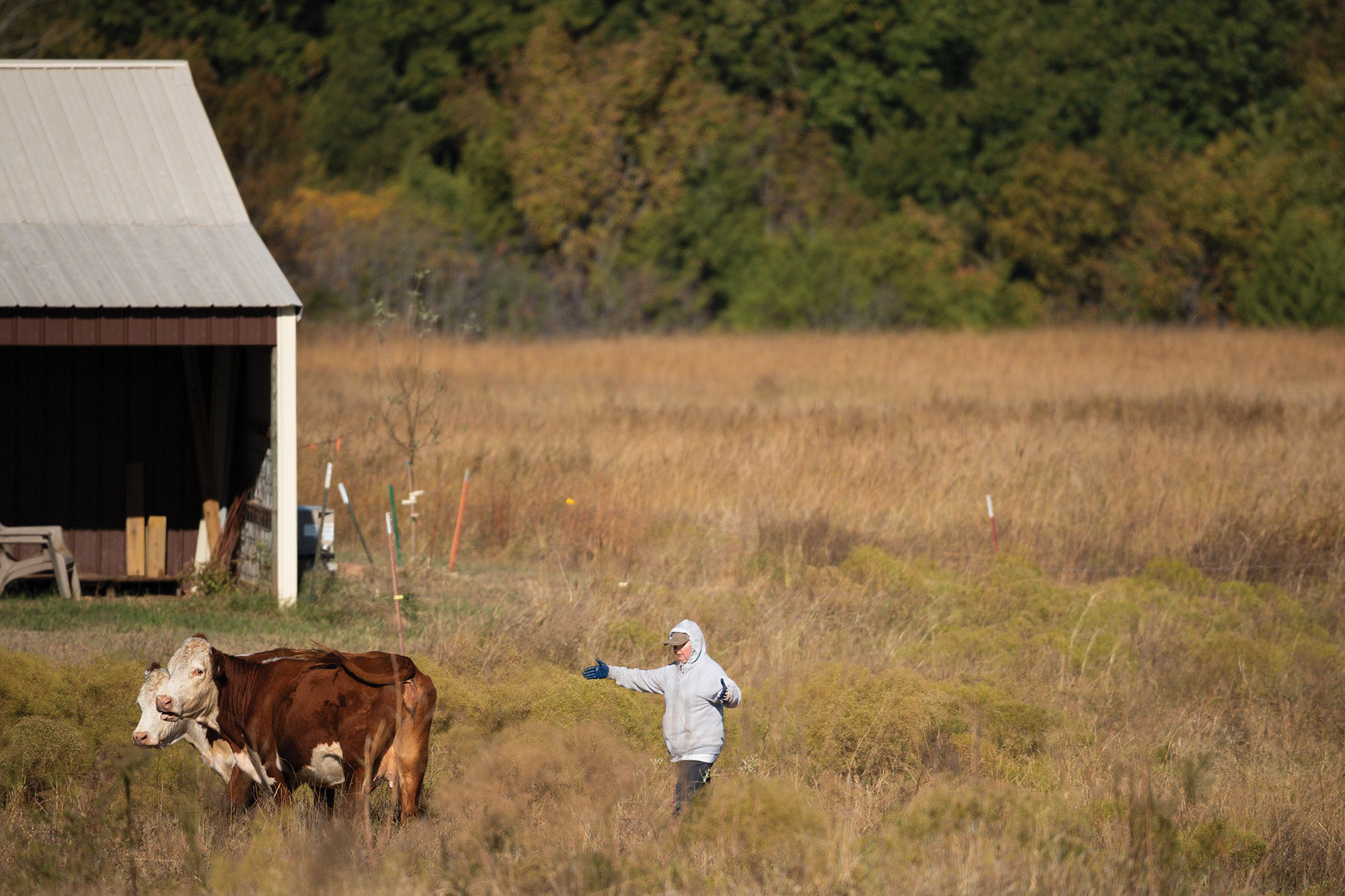
Restoring Rangeland
What might grow on the Paynes’ new ranch was a mystery. The 920 acres didn’t have enough grass residue to determine what species had grown on the property. With more questions than answers, the Paynes reached out to Noble Research Institute in 2006.
“Noble Research Institute was behind us in everything we had to do,” William says. “They gave us the information to make educated decisions. Others came in and said we weren’t going to make it, but Noble gave us the best advice we ever received: ‘Let the land rest for a year, then we’ll see what we have.’”
While the soil slept, the couple gradually eliminated barriers to natural regeneration. They cleared brush and trees without dozers or heavy machines. Overgrown barbwire barriers gave way to lanes of electric fences. Stumps remained to ward off further erosion.
Their clearing quest revived more than just the land. Propelling down the dirt road that cut through the ranch, William noticed something glistening inside the trees. He sauntered toward it. Five steps later, he speed dialed his wife: “Honey, we may have a bonus.”
Karen joined him just off the road. He pulled back branches to unveil a barn big enough to hold more than 80 round hay bales. They cleared away more trees to discover a second barn. The abandoned structures were in perfect condition.
The land blossomed under its first intentional care in two decades. The Paynes didn’t sow a single seed, yet native grasses started to resurface from the soil. Since then, they solely manage Destiny Ranch for native grasses.
“Our vision for this ranch was to run stocker cattle, so we eat, sleep and drink our grasses and soil,” William says. “It is all about our grasses and raising good quality beef. It’s our grasses that make everything work. We can’t have the cattle without the grasses, so we are grass farmers at heart.”
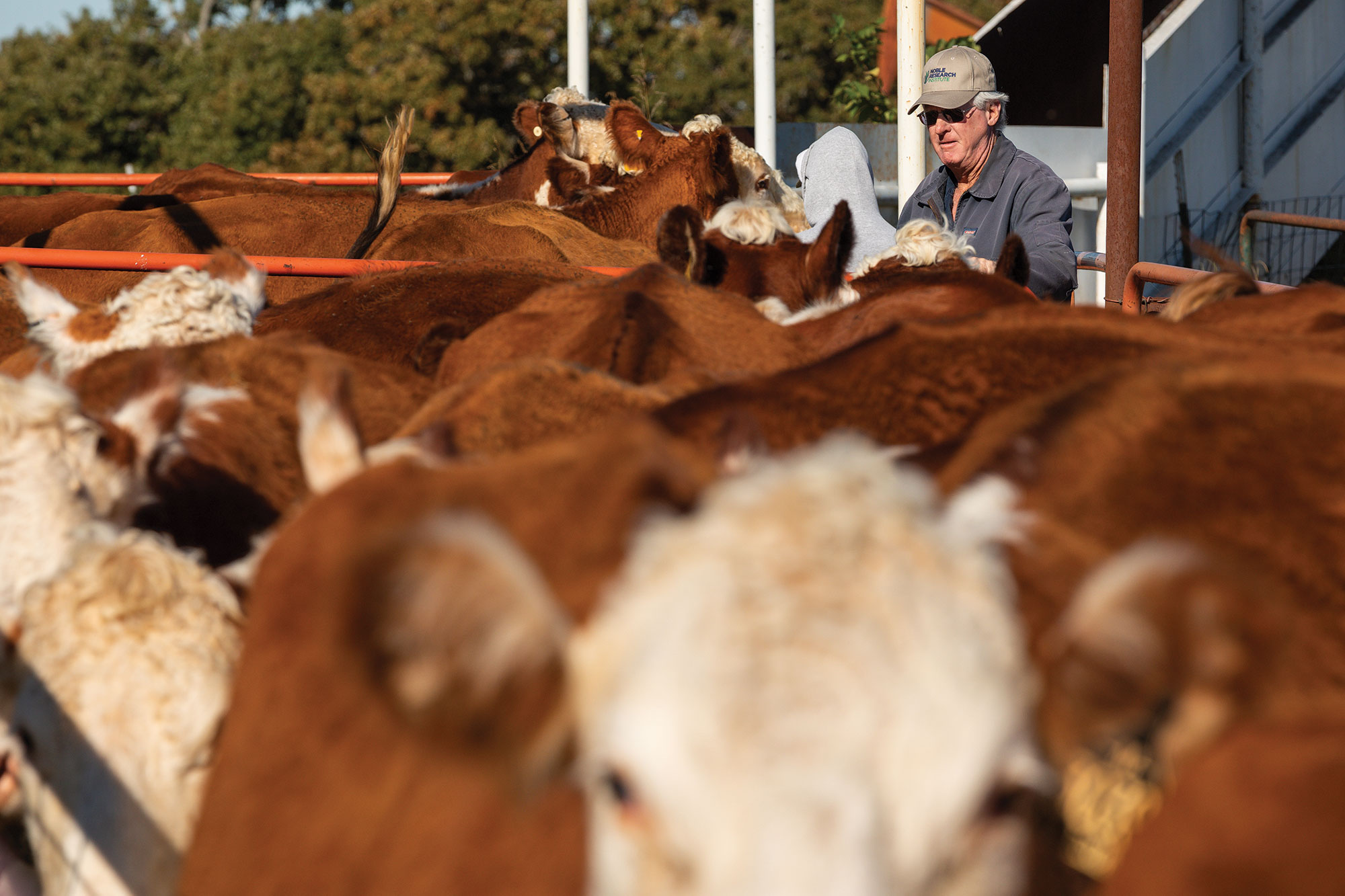
Revolutionary Rotational Grazing
The Paynes welcomed 290 steer calves to the ranch in 2007. The land was ready and so were the Paynes with a little help. The first batch of calves costs $40,000 to feed, more than the cattle would earn. The Paynes needed to shift their grazing style. Once again, Noble Research Institute was behind them.
“Noble’s experience and expertise allowed us to focus on what needed to be done,” William says. “If we had tried to do what other folks recommended, we would have gone broke. We would have never made it. But with Noble having the research already done, they knew what worked.”
The couple embraced a high intensity grazing system established by Noble consultant Hugh Aljoe. They began moving cattle every 24 hours by foot in 2010. Heat waves sizzled around them as they rolled and unrolled miles of temporary fence to close off 1-acre paddocks.
“We looked through the grazing records and gave them a proposal, but we told them it has to be your plan,” Aljoe says. “We gave them the information, but they made the choice to move cattle every day. They put in the work to improve their average daily gain.”
Drought flooded Oklahoma with thirst that summer. While the surrounding fields shriveled away, the Paynes’ grasses — 5,000 pounds worth — shot to more than 2 feet. Destiny Ranch was an oasis under the Paynes’ innovative land management.
“It’s hard to take that step away from what’s been going on the last 70 years,” William says. “You’re going to step out there and do something different. Maybe it will work, or maybe it won’t. Not many people are willing to do that. But, Noble Research Institute has done the footwork for us, so it should be an easy step.”
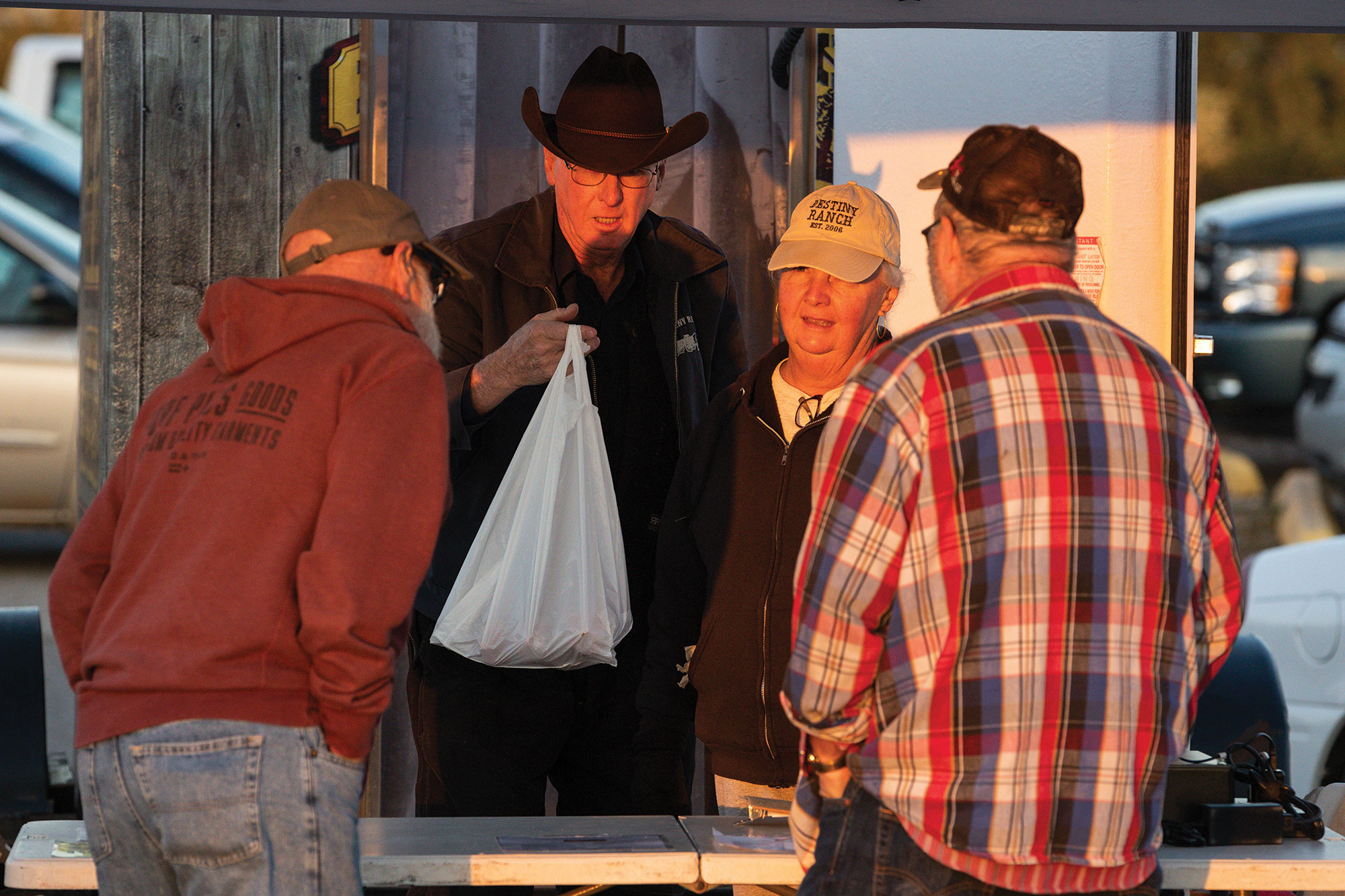
Resurrected Ranch
Today, with 300 stockers year-round with annual marketing of about 1,000 head, the Paynes move cattle with ritualistic efficiency. The cows are always ready to head toward a new paddock with fresh grass, proteins and nutrients.
Destiny Ranch sprawls out in front of visitors. Grassy hills and wildflower meadows have replaced tree tyrannized terrain. Native prairie grasses sway in the Oklahoma breeze around the Paynes as they move cows. Cattle trot past them with bovine swagger as they head to their next buffet of grass. Karen stoops to pluck a grass blade. She twirls it between her fingers, marveling at the ranch’s renewal. Hundreds of producers trek to Destiny to attend seminars on the Paynes’ property. Gasps bellow from the attendees when they see old pictures of the ranch. Their astonishment turns hopeful as the Paynes share land management strategies.
The Paynes’ 14 years as land stewardship champions has captured more than just the attention of their peers. Noble Research Institute honored both William and Karen as the 2019 recipient of the Leonard Wyatt Memorial Outstanding Cooperator Award.
“The Leonard Wyatt award for us is the highest honor,” William says. “For us it feels like recognition from our peers and all the people who have helped us. They can see what we are trying to do here. We are beyond words with how much this award means to us. It’s just incredible to receive the award and to work with everyone who has helped us.”
If you ask Hugh Aljoe, he’ll tell you that Noble was glad to help. But, he says, it was the Paynes who paved the road to Destiny.
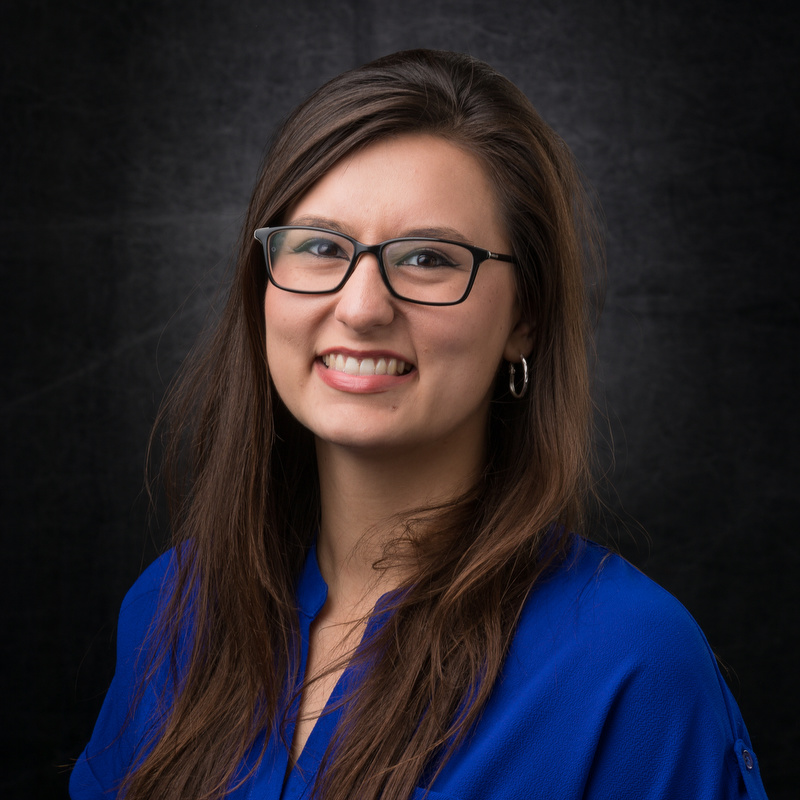
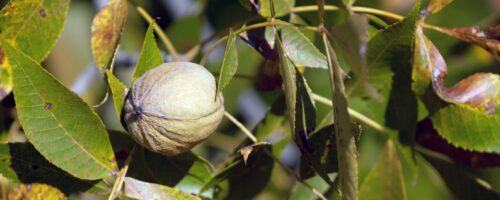
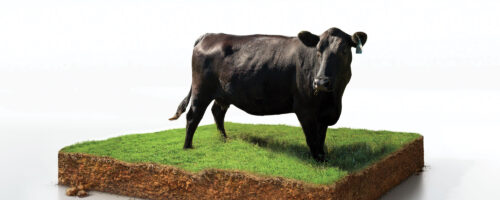
Comment